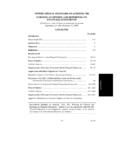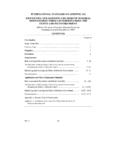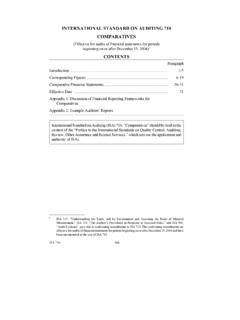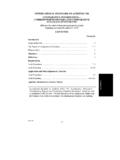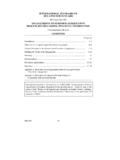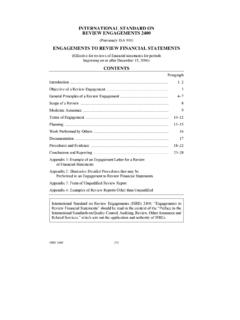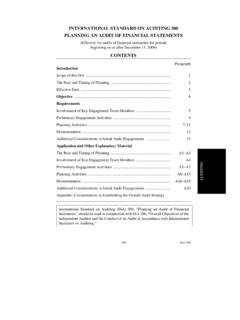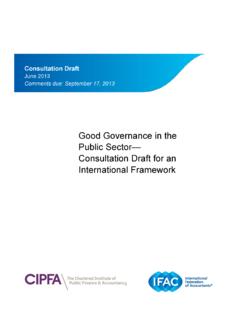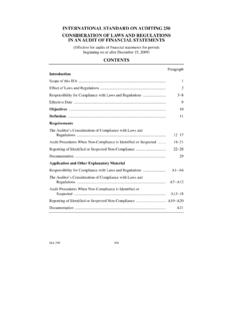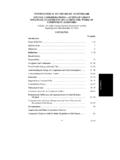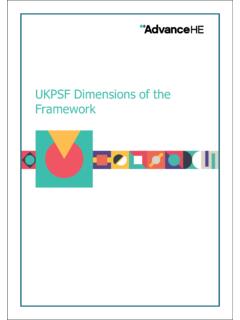Transcription of B15 Code of Ethics
1 Ethics 1100 June 2005 Revised July 2006 CODE OF Ethics FOR professional ACCOUNTANTS CONTENTS Page PREFACE .. 1102 PART A: GENERAL APPLICATION OF THE CODE .. 1103 100 Introduction and Fundamental Principles .. 1104 110 Integrity .. 1110 120 Objectivity .. 1111 130 professional Competence and Due Care .. 1112 140 Confidentiality .. 1113 150 professional Behavior .. 1115 PART B: professional ACCOUNTANTS IN PUBLIC PRACTICE.
2 1116 200 Introduction .. 1117 210 professional Appointment .. 1123 220 Conflicts of Interest .. 1127 230 Second Opinions .. 1129 240 Fees and Other Types of Remuneration .. 1130 250 Marketing professional Services .. 1133 260 Gifts and Hospitality .. 1134 270 Custody of Client Assets .. 1135 280 Objectivity All Services .. 1136 290 Independence Assurance Engagements .. 1137 The Code was issued in June 2005 and became effective on June 30, 2006.
3 Paragraphs and are applicable to assurance engagements when the assurance report is dated on or after June 30, 2006. Paragraphs , which were issued in July 2006, apply to assurance engagements when the assurance report is dated on or after December 31, 2008. CODE OF Ethics FOR professional ACCOUNTANTS Ethics 1101 Ethics PART C: professional ACCOUNTANTS IN BUSINESS .. 1192 300 Introduction .. 1193 310 Potential Conflicts .. 1197 320 Preparation and Reporting of Information.
4 1199 330 Acting with Sufficient Expertise .. 1201 340 Financial Interests .. 1203 350 Inducements .. 1205 DEFINITIONS .. 1207 EFFECTIVE DATE .. 1213 CODE OF Ethics FOR professional ACCOUNTANTS Ethics 1102 PREFACE The mission of the International Federation of Accountants (IFAC), as set out in its constitution, is to serve the public interest, IFAC will continue to strengthen the worldwide accountancy profession and contribute to the development of strong international economies by establishing and promoting adherence to high quality professional standards, furthering the international convergence of such standards and speaking out on public interest issues where the profession s expertise is most relevant.
5 In pursuing this mission, the IFAC Board has established the Ethics Standards Board for Accountants to develop and issue, under its own authority, high quality ethical standards and other pronouncements for professional accountants for use around the world. This Code of Ethics for professional Accountants establishes ethical requirements for professional accountants. A member body of IFAC or firm may not apply less stringent standards than those stated in this Code.
6 However, if a member body or firm is prohibited from complying with certain parts of this Code by law or regulation, they should comply with all other parts of this Code. Some jurisdictions may have requirements and guidance that differs from this Code. professional accountants should be aware of those differences and comply with the more stringent requirements and guidance unless prohibited by law or regulation. CODE OF Ethics FOR professional ACCOUNTANTS Ethics 1103 Ethics PART A GENERAL APPLICATION OF THE CODE Page Section 100 Introduction and Fundamental Principles.
7 1104 Section 110 Integrity .. 1110 Section 120 Objectivity .. 1111 Section 130 professional Competence and Due Care .. 1112 Section 140 Confidentiality .. 1113 Section 150 professional Behavior .. 1115 CODE OF Ethics FOR professional ACCOUNTANTS Ethics 1104 SECTION 100 Introduction and Fundamental Principles A distinguishing mark of the accountancy profession is its acceptance of the responsibility to act in the public interest. Therefore, a professional accountant s* responsibility is not exclusively to satisfy the needs of an individual client or employer.
8 In acting in the public interest a professional accountant should observe and comply with the ethical requirements of this Code. This Code is in three parts. Part A establishes the fundamental principles of professional Ethics for professional accountants and provides a conceptual framework for applying those principles. The conceptual framework provides guidance on fundamental ethical principles. professional accountants are required to apply this conceptual framework to identify threats to compliance with the fundamental principles, to evaluate their significance and, if such threats are other than clearly insignificant to apply safeguards to eliminate them or reduce them to an acceptable level such that compliance with the fundamental principles is not compromised.
9 Parts B and C illustrate how the conceptual framework is to be applied in specific situations. It provides examples of safeguards that may be appropriate to address threats to compliance with the fundamental principles and also provides examples of situations where safeguards are not available to address the threats and consequently the activity or relationship creating the threats should be avoided. Part B applies to professional accountants in public practice.
10 * Part C applies to professional accountants in business.* professional accountants in public practice may also find the guidance in Part C relevant to their particular circumstances. Fundamental Principles A professional accountant is required to comply with the following fundamental principles: (a) Integrity A professional accountant should be straightforward and honest in all professional and business relationships. See Definitions.
